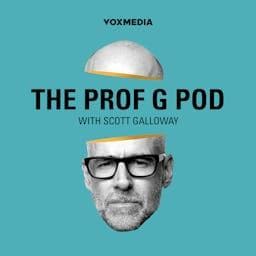A year ago I exposed the criminal past of the founder of AG1. Now we're going to talk about the science.Check out Alexis Léveillé's instagram post:https://www.instagram.com/p/DJ7SWK6vmyU/?img_index=1And subscribe to @nobullshitphysio https://www.instagram.com/nobullshitphysio/Athletic Greens is a green supplement powder that claims to meet “all your nutritional needs” with a daily $3 slurry of vitamins and adaptogenic buzzwords. If you’ve listened to just about any health-forward podcast in the last ten years, you’ve no doubt heard of it. And, if you’ve been following this channel for a while you probably also know that last year I exposed the criminal past of the founder who founded the company after we fled New Zealand for running a real estate scam. A few months after that report came out Chris Ashenden stepped down from his role as CEO. I also heard through the grapevine that they lost $45 million in subscription revenue because of my report.Even so, AG1 continues to be one of the most prominent financial backers of grifty podcasters — from Andrew Huberman and Peter Attia to Rich Roll and Tim Ferris. They offer lucrative sponsorship opportunities to anyone who is willing to repeat their health claims with a straight face.Part of their pitch is that unlike other supplement powders, they have actual science backing them up. While my earlier report posited the idea that you can judge the character of a company by the character of its founder, many people wrote to me that all they really cared about was whether or not AG1 actually works. They wanted to hear the science.Last week Alexis Maxence Léveillé (who goes by NoBullshitPhysio in Instagram) reached out to me saying that he had a scoop about AG1’s scientific integrity and asked me to collaborate. We have spent the last few days combing through scientific studies, interviewing scientists and talking with representatives over at AG1.And, I have to say, we sort of found a bombshell hidden in plain sight in their academic research.In the video above we examine AG1’s claims up close and report that they knowingly use an active placebo called maltodextrin as the baseline to determine if AG1 actually works. It’s true that many microbiome studies also have used maltodextrin in the past, research that they cite from 2022 proves that maltodextrin actually harms gut health. While they could have simply used inert water as a baseline, they specifically chose to use a placebo that would inherently make their supplement line look better.Even with their home-team advantage, the only published study on humans they have in their lineup actually showed no substantial difference between maltodextrin and AG1. In other words: despite claiming great things on their website, it was pretty much a wash.But wait, it gets even weirder.Once I reached out to AG1’s PR team and their entire slate of scientists, the research page began to morph in real time. They started posting about upcoming publications that haven’t been peer reviewed or published, and vastly expanded their section on research ethics.There’s a lot more to the story, but I don’t want to ruin your enjoyment of the video I have posted above.Get Early Access on Substackhttps://sgcarney.substack.com/




































